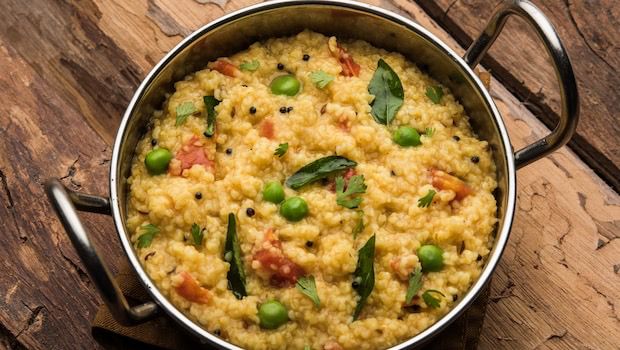The humble Indian khichdi, a comforting one-pot dish of rice and lentils, has traveled a remarkable culinary path to become kedgeree—a celebrated British breakfast classic. This transformation reflects centuries of cultural exchange, colonial history, and evolving tastes that turned a simple South Asian staple into a sophisticated Anglo-Indian delicacy adored across the UK.
Key Highlights of the Journey
Khichdi, derived from the Sanskrit word ‘khiccā’ meaning a mixture of rice and lentils, has deep historical roots with early mentions dating back to ancient Indian epics and Mughal records.
British colonial officials, traders, and soldiers in 17th and 18th century India adapted khichdi to suit Western palates, integrating smoked fish and boiled eggs—ingredients common in British breakfasts.
Early British descriptions by travelers and officials like John Grose in the 1750s document their preference for local ‘country diet’ including khichdi, appreciated for its taste and suitability to India’s climate.
The earliest written kedgeree recipes appear in Scottish journals by the late 18th century, evidencing how returning British colonials introduced the dish to the UK.
Victorian England’s breakfast culture embraced kedgeree as a ‘fancy’ meal alongside other Anglo-Indian dishes, helped by advancements like railways that facilitated transporting smoked fish.
The dish evolved into a frugal, flavorful way to repurpose leftovers, reflecting Victorian sensibilities about economy and taste.
Khichdi: The Indian Comfort Food
Known for its simplicity, nourishment, and warmth, khichdi is a dish synonymous with Indian households and celebrations. Traditionally consisting of rice and lentils cooked with spices, it serves both as a medicinal food for convalescence and a comfort meal. Variants across regions incorporate vegetables, meats, or dairy according to local tastes.
The Anglo-Indian Adaptation: Kedgeree
Kedgeree is a reimagined version of khichdi that replaced lentils with smoked fish—usually haddock—paired with boiled eggs and lightly spiced rice. This adaptation reflects British culinary preferences and available ingredients during colonial times. The dish’s introduction to British tables reflects the broader phenomenon of ‘curry’ and Anglo-Indian cuisine shaping Victorian gastronomy.
Cultural and Historical Context
The fusion reflected in kedgeree mirrors the complex interactions between Indian and British cultures. Mughal influences, British tastes, trade logistics, and social practices contributed to this evolving dish. Food historians note how kedgeree was common in ‘burra khanas’—grand Anglo-Indian dinners—and became part of genteel British breakfasts alongside devilled kidneys and other exotic fare.
Modern Day Kedgeree
Today, kedgeree remains a beloved comfort food in the UK, enjoyed not only at breakfast but also at brunch and dinner. Contemporary cooks experiment with diverse fish varieties, spices, and accompaniments, but the essential spirit—a satisfying one-pot melding of flavors—endures.
Significance and Culinary Legacy
Kedgeree stands as an early example of fusion cuisine, predating modern trends by centuries. It encapsulates stories of colonialism, migration, adaptation, and shared culinary heritage. The dish embodies cultural dialogue through food, reminding us how simple staples can transcend borders and evolve while preserving their comforting essence.
Conclusion
From the simple, nourishing Indian khichdi to the smoked fish and egg-laden kedgeree of Victorian Britain, this culinary journey illustrates the power of food as a cultural bridge. It is a testament to how comfort foods travel, transform, and find new meanings in distant kitchens—binding histories and palates across continents.
Sources: National Geographic, Sanjit Chudha Blog, Wikipedia

